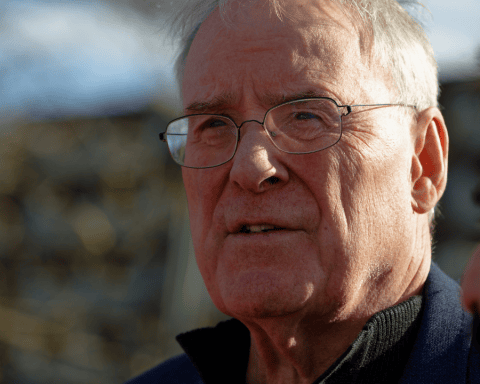New cases of COVID-19 in Japan are surging to the highest levels reported since the pandemic started. And yet, for Paralympians competing in Tokyo this week, COVID is not the biggest risk. That title belongs to extreme heat.
For several years, I’ve studied climate adaptation in the sports sector. The Tokyo Olympics were the hottest on record – a consequence of climate change. The Paralympics, which begin August 24, are expected to set records, too. It’s not the first time this has happened to Japan. In 1964, the last time the Games were hosted in Tokyo, they were moved to the fall because the weather conditions in summer were deemed unsafe. Fifty-seven years later, the city is hotter. Tokyo’s Bureau of Environment identified that the city experienced an average mean temperature increase of 3°C over the past century, with 2.7°C of that increase occurring since the 1960s.
Ahead of the Tokyo Olympics this year, athletes were asked to sign waivers that released the organizers from liability for risks associated with COVID-19 and extreme heat. This waiver proved useful when, two days into the Games, a heat wave began, affecting several outdoor competitions. Athletes sought medical attention for heat-related illnesses, and competitions were delayed. Most famously, the women’s gold medal soccer match was postponed from a mid-day start time to 9pm to escape the heat.
Sport-science research has demonstrated that humans perform exercise best in cool, dry environments at around 11°C. As temperatures and humidity increase, cognitive and physical performance deteriorate, to the point where health is compromised. This can potentially lead to heat cramps, heat exhaustion and, in extreme cases, heat stroke. There is also academic research that suggests balls move more slowly in the heat, and officials’ decision-making is worse. Long story short: the best games are not played in stifling heat, and the conditions are worse still for Paralympians. While temperatures during the Paralympics are expected to be one to two degrees cooler on average than during the Olympics, the conditions may still impose considerable heat strain since the Paralympic athletes often have a reduced ability to thermoregulate.
The Tokyo 2020 organizers knew the temperatures might present a challenge: the marathon and racewalking events were moved more than 1,000 kilometres north to Sapporo to escape the heat. And yet, aside from some extra water bottles and makeshift cooling tents provided at outdoor competition venues, not enough was done ahead of the Games to prepare.
With three extra weeks to prepare for similar conditions during the Paralympics, it is yet unclear whether sufficient additional measures have been taken to accommodate athletes in the heat.
The new United Nations’ Intergovernmental Panel on Climate Change report, released August 9, was unequivocal: conditions will worsen. Summer events will be more likely to face heat waves and erratic patterns of heavy precipitation. Paris 2024 is up next – a city that has also experienced severe heat waves in recent years. Then the Games move to Los Angeles, which has had average daily high temperatures of 30.4°C in July since 1990, and August daily highs above 31°C.
The region is also heavily affected by wildfires. The site of the original Olympic Games, Athens, was also threatened by raging wildfires this summer.
Winter events are similarly at risk. Beijing will rely almost exclusively on artificial snow, following three consecutive Winter Olympics with similar challenges: Pyeongchang 2018 had unseasonal snowstorms, which delayed competitions; Sochi 2014 had too little snow; and Vancouver 2010 trucked in snow from the British Columbia interior. Looking ahead, few cities are bidding to host the winter event given deteriorating winter conditions in most of the Northern Hemisphere, and the rising costs of hosting.
My research is focused on climate-adaptation efforts in the sports industry. Consistently, scheduling and location changes are highlighted as the most reliable and efficient way to adapt: move summer sport events to the fall, to avoid the heat. Shift winter sport events to the coldest months, and high-altitude locations. But this isn’t a perfect solution and is certainly not straightforward as these events are planned eight to 10 years in advance and each sport has qualifying events that are scheduled around them, creating a domino effect of rescheduling efforts.
One oft-suggested climate-adaptation plan for the Olympic and Paralympic Games, which would reduce emissions associated with the construction of new buildings for each iteration of the event, is to set one recurring host city for summer and one for winter. However, this puts a lot of environmental pressure on those two cities.
The International Olympic Committee has recognized these challenges and adopted the environment as the third pillar of the Olympic Agenda 2020 and has begun setting increasingly stringent expectations for host cities’ sustainability efforts. But progress has been slow, and climate-adaptation plans don’t often figure into sustainability plans – these are usually left to the risk-management and facilities teams.
For its part, the International Paralympic Committee has declared its commitment to sustainability and the UN’s Sustainable Development Goals in 2019 by signing a statement of intent with the UN SDG Action Campaign. However, the organization has focused its efforts on equity, inclusion and health-related goals.
Only time will tell which direction the Games will go in future, but two things are clear: the Games are not sustainable in their current form, and climate adaptation is necessary for every iteration of the event moving forward.
Madeleine Orr, PhD, is a researcher at University of British Columbia at Okanagan and the founder and co-director of The Sport Ecology Group.





